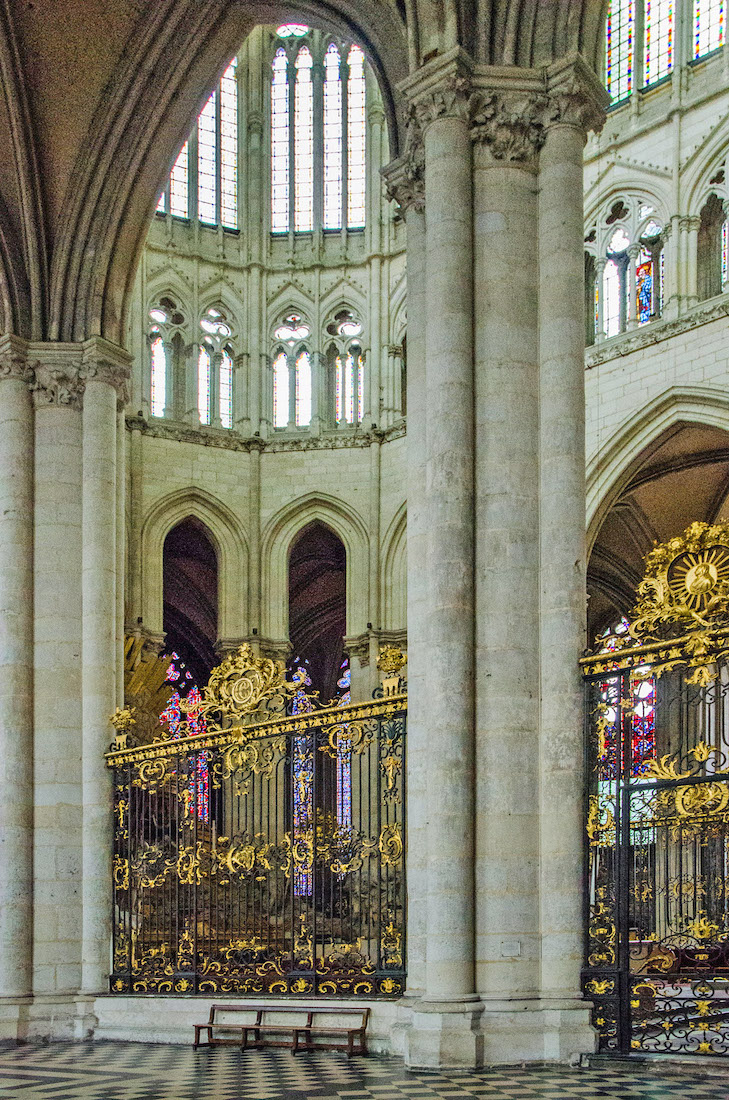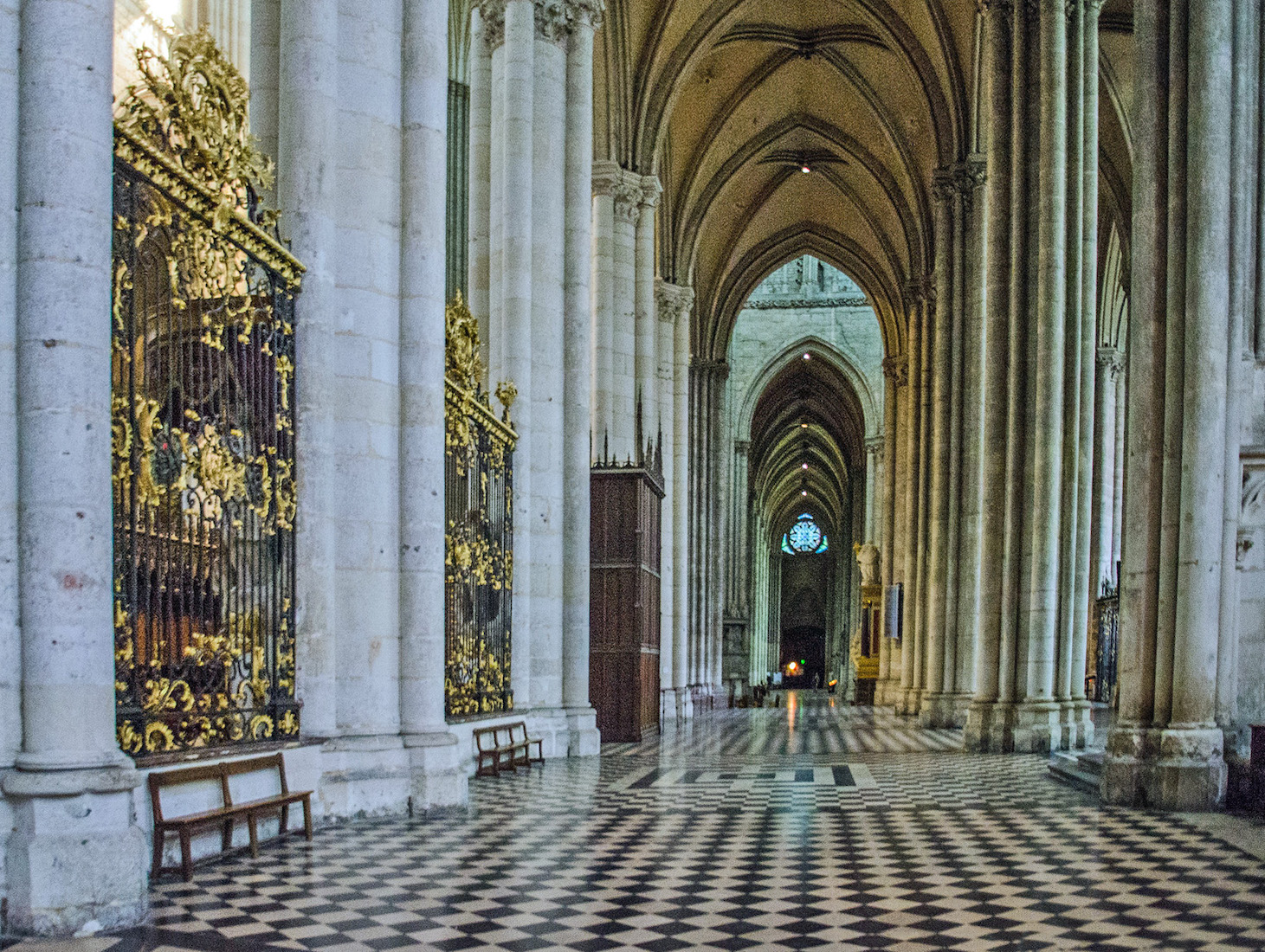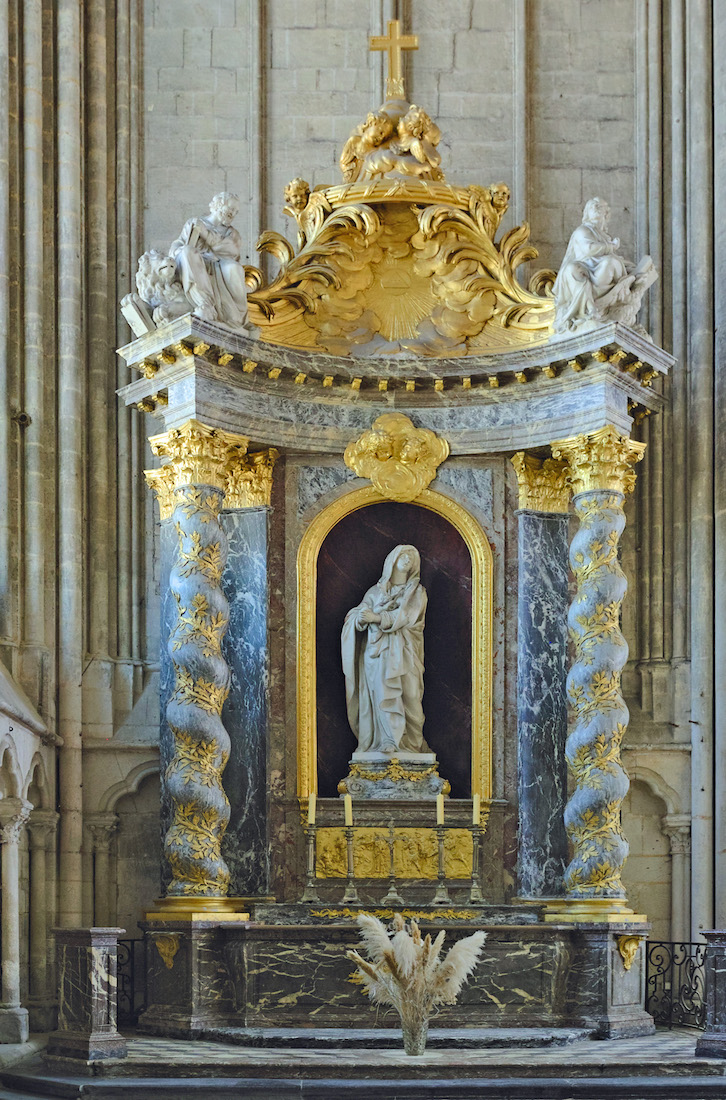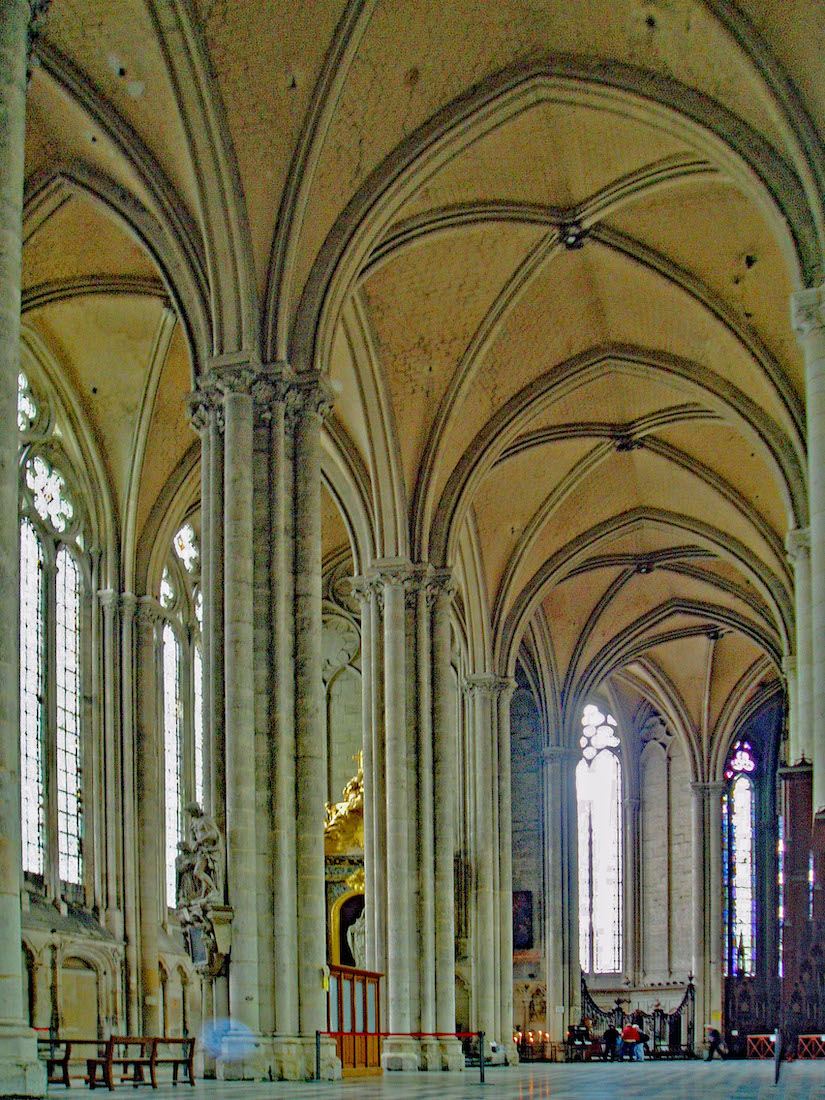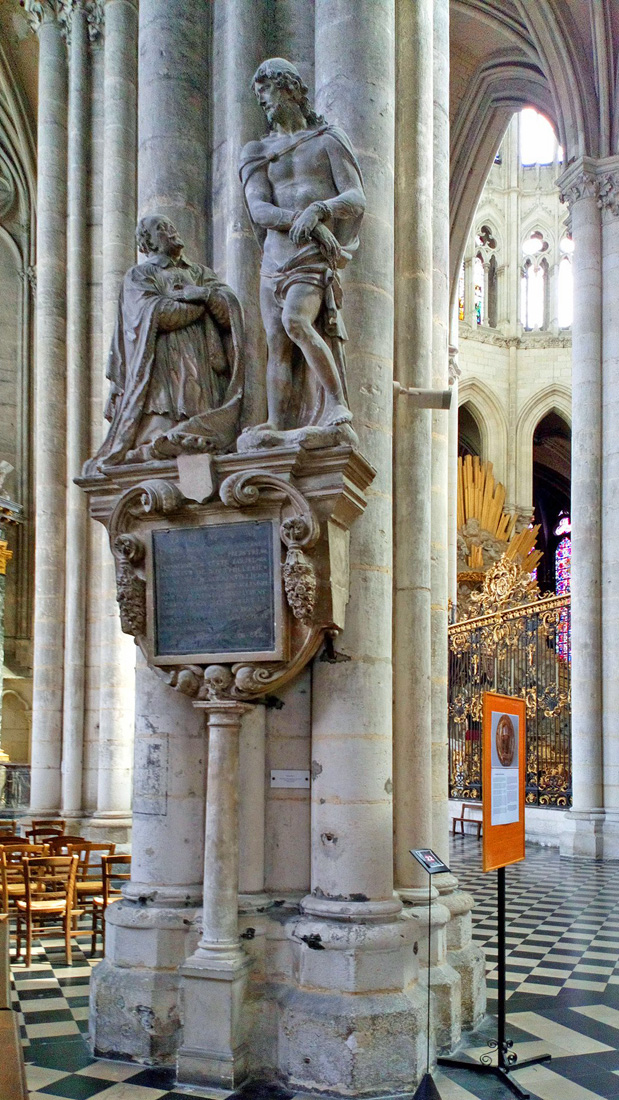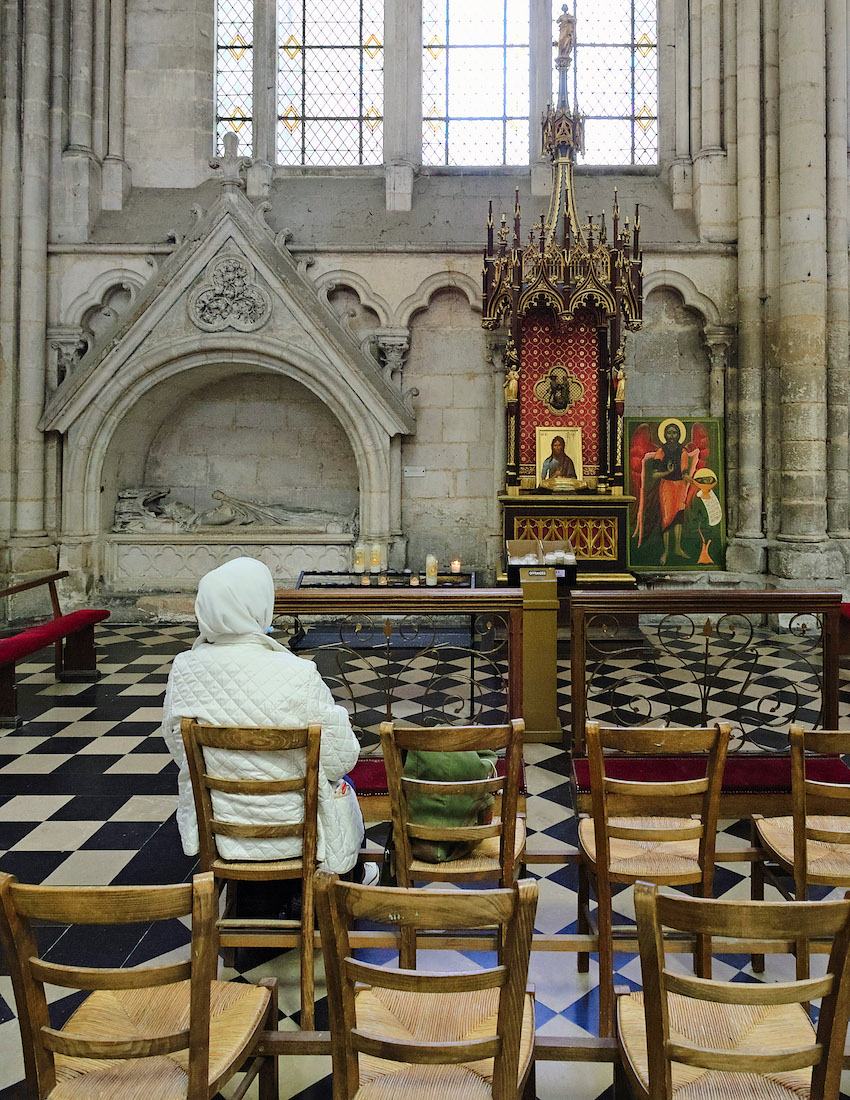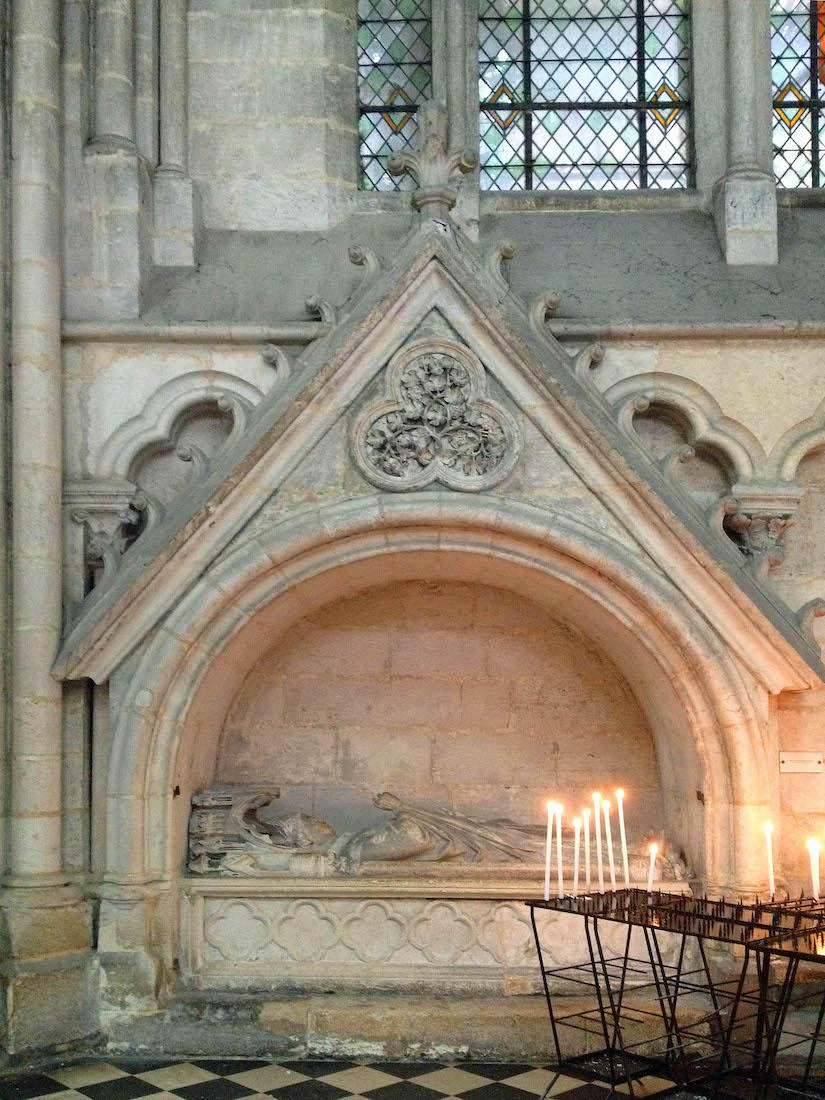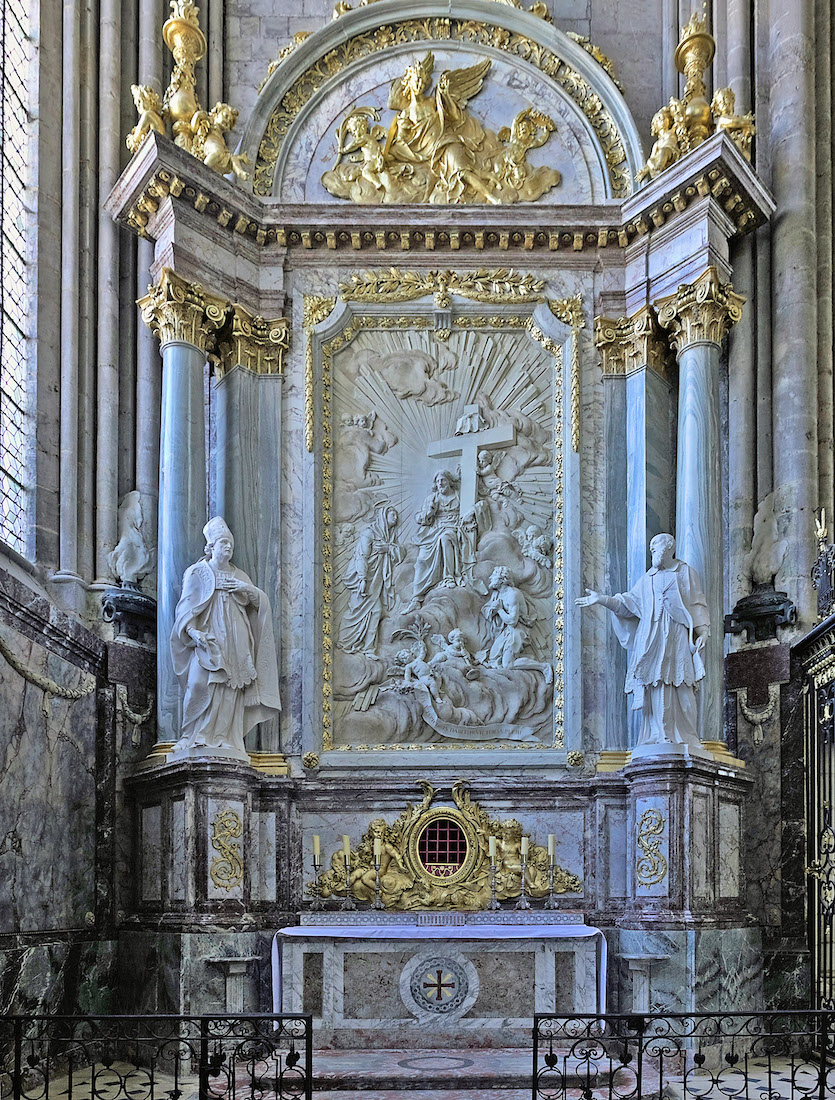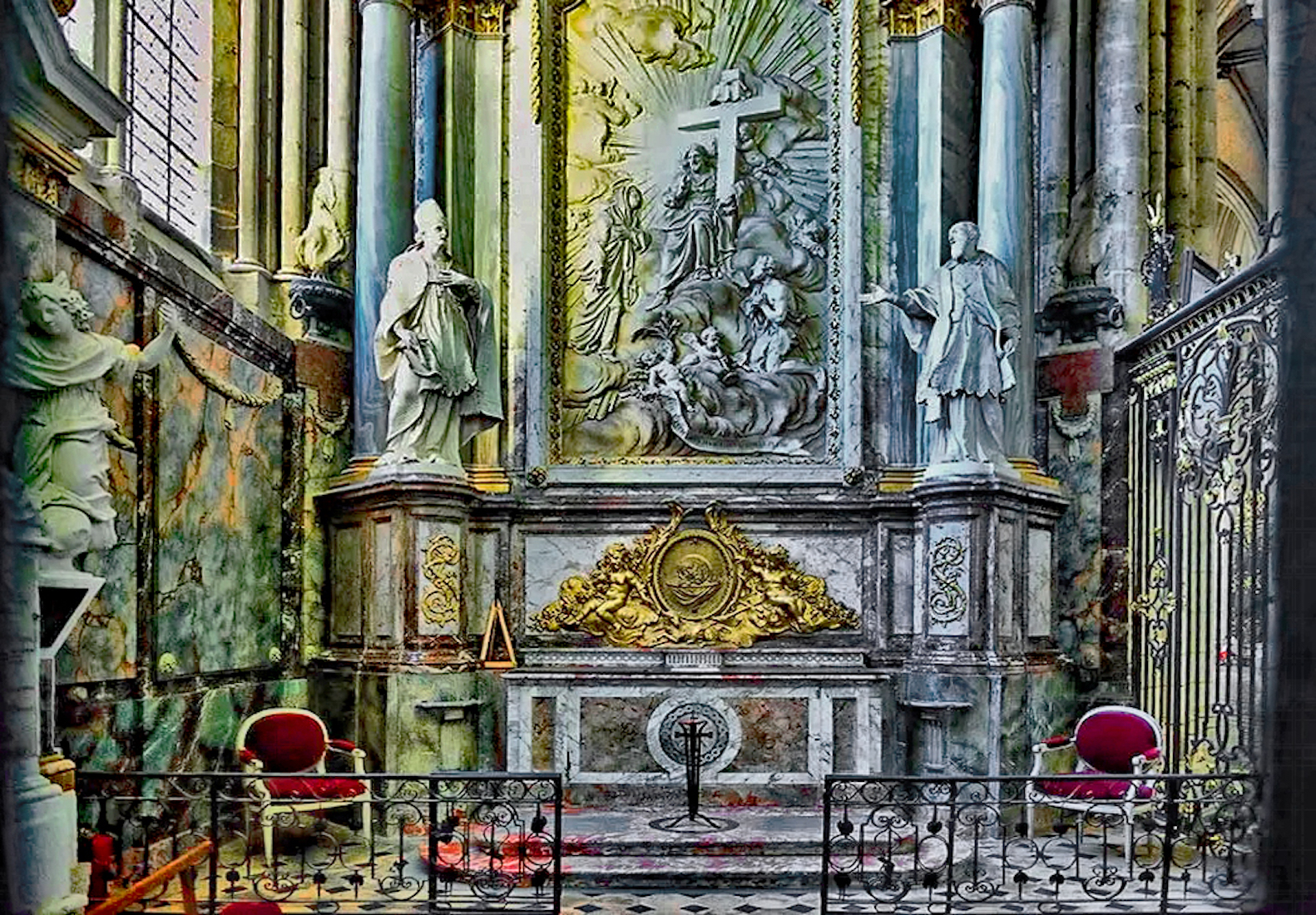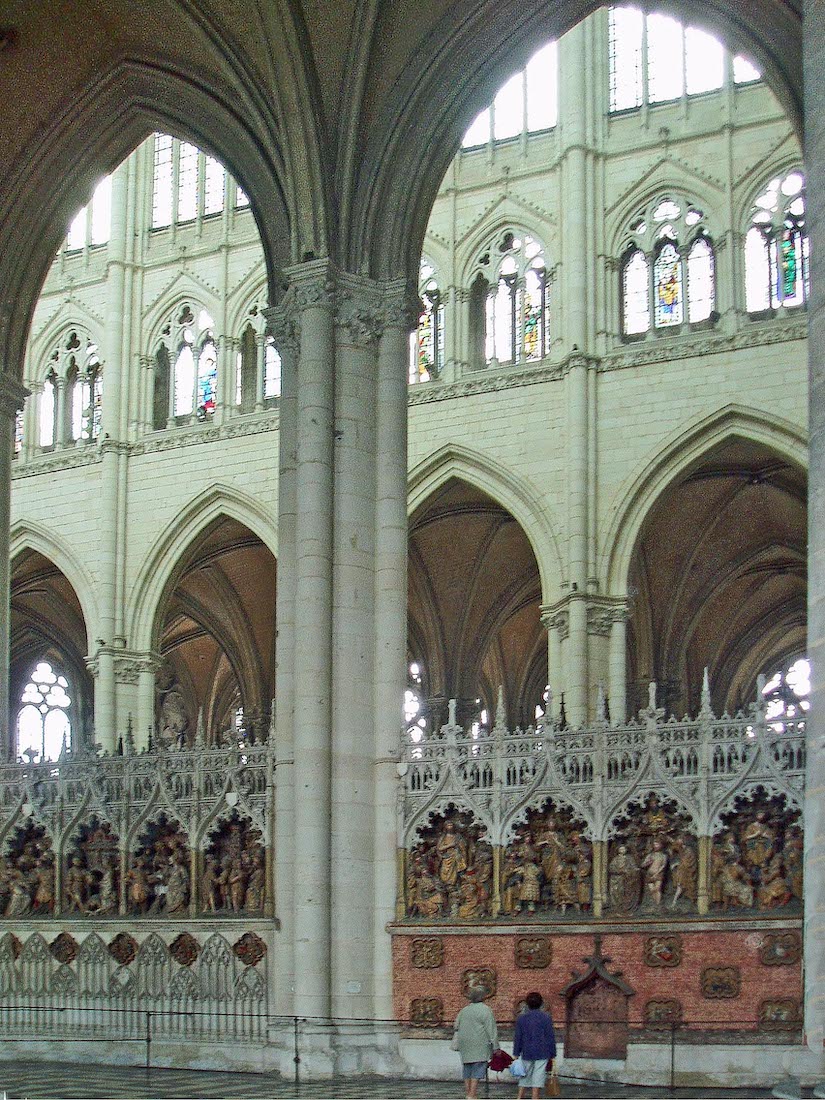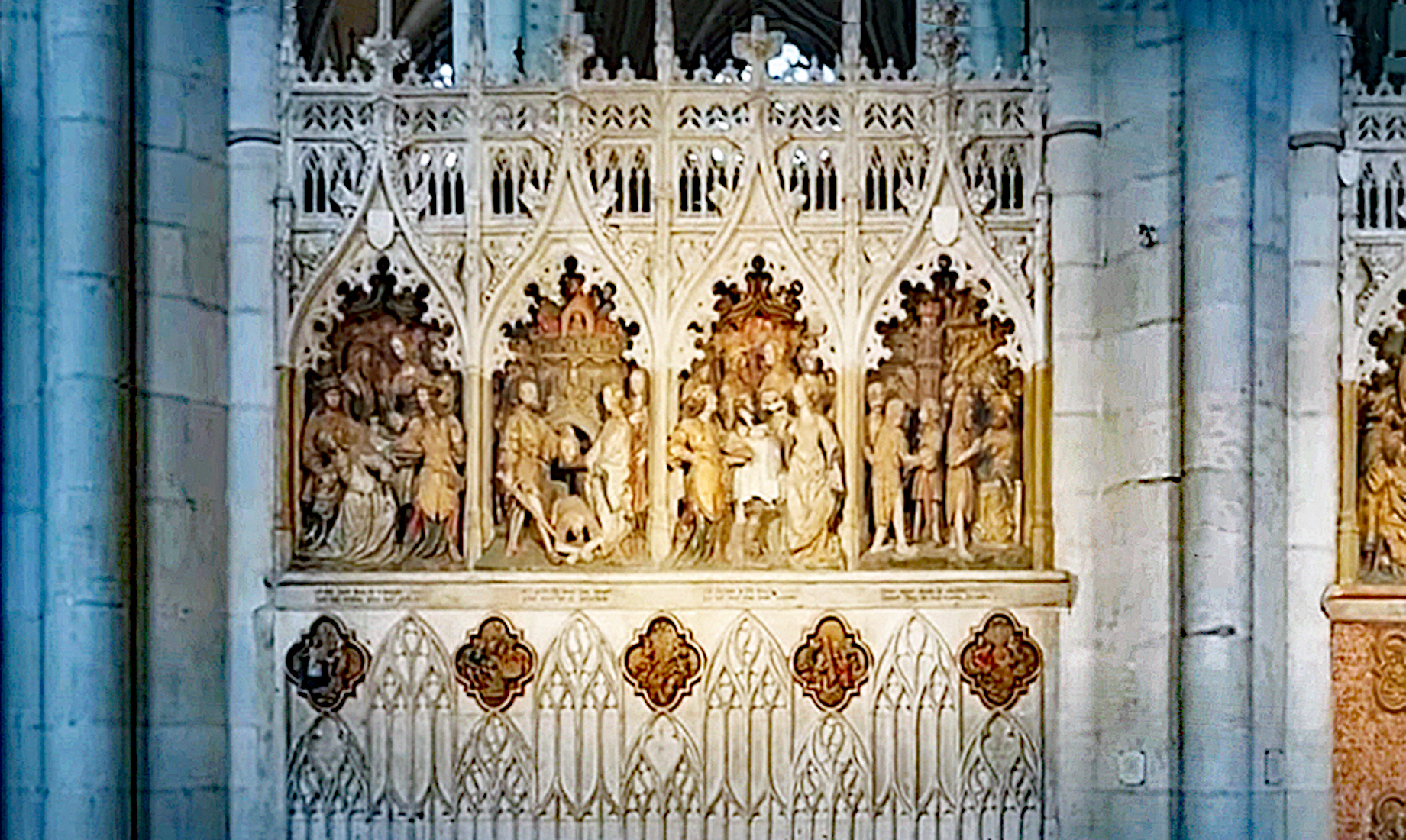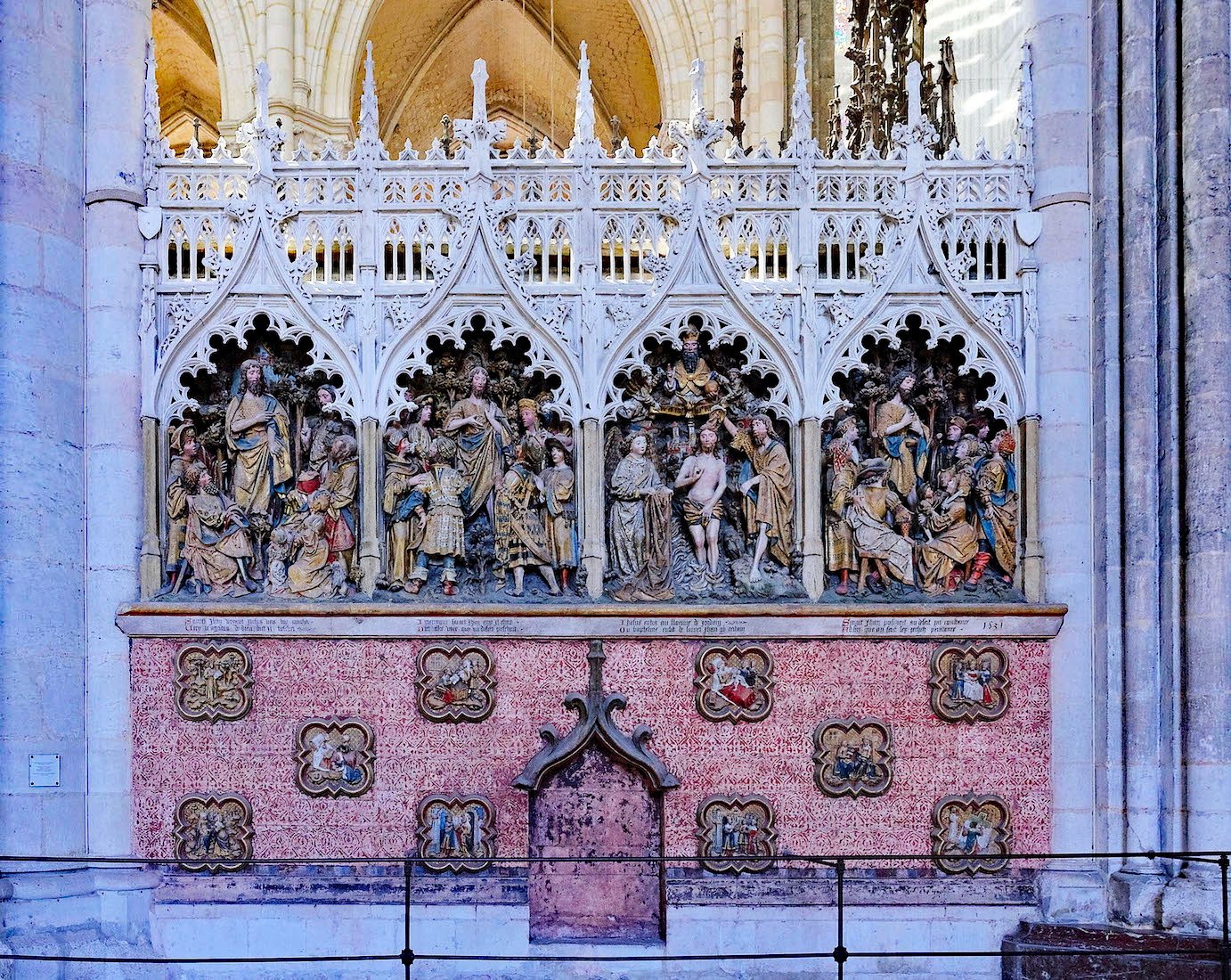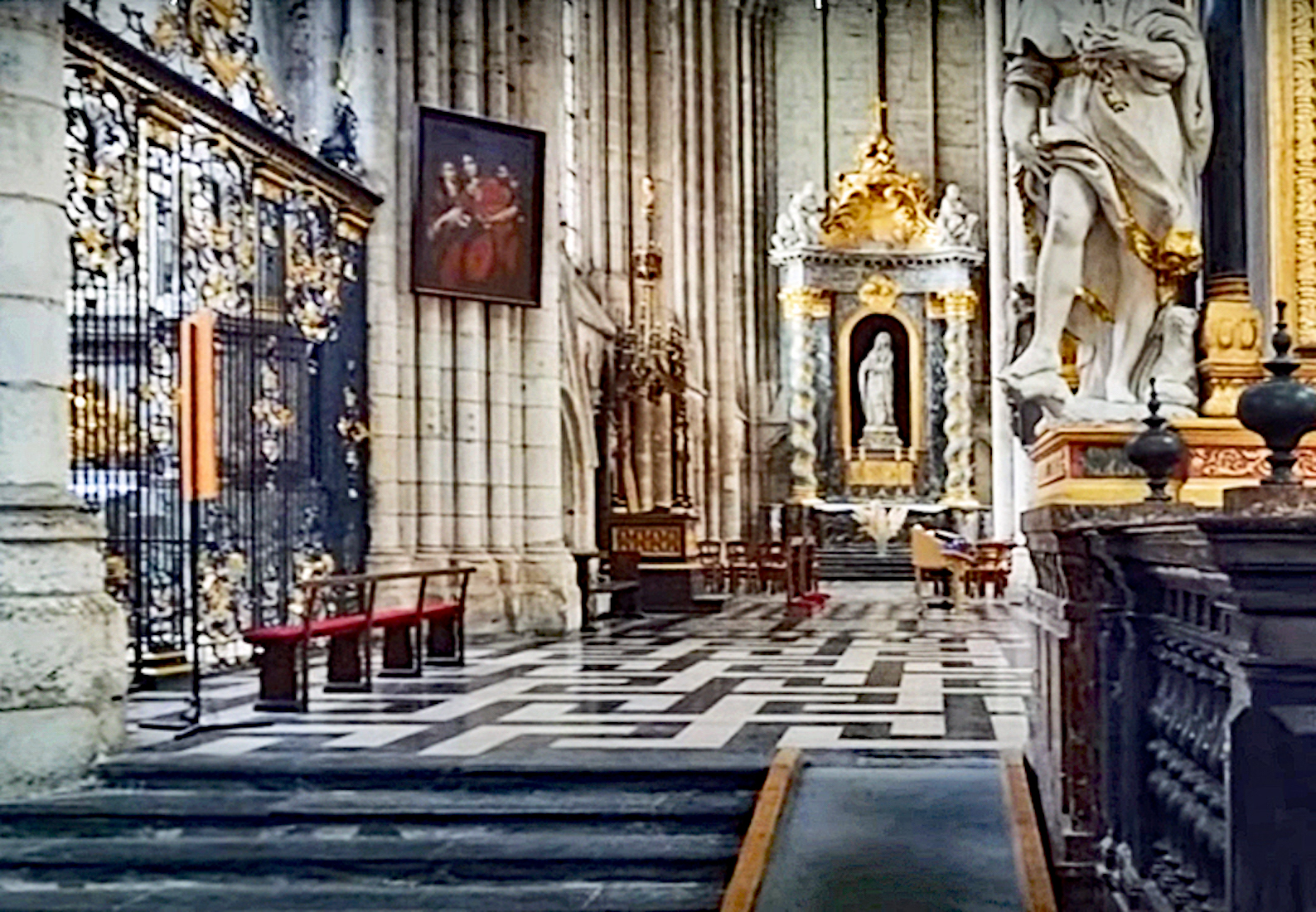A21. LINK TO THE WINTER CHAPEL MW
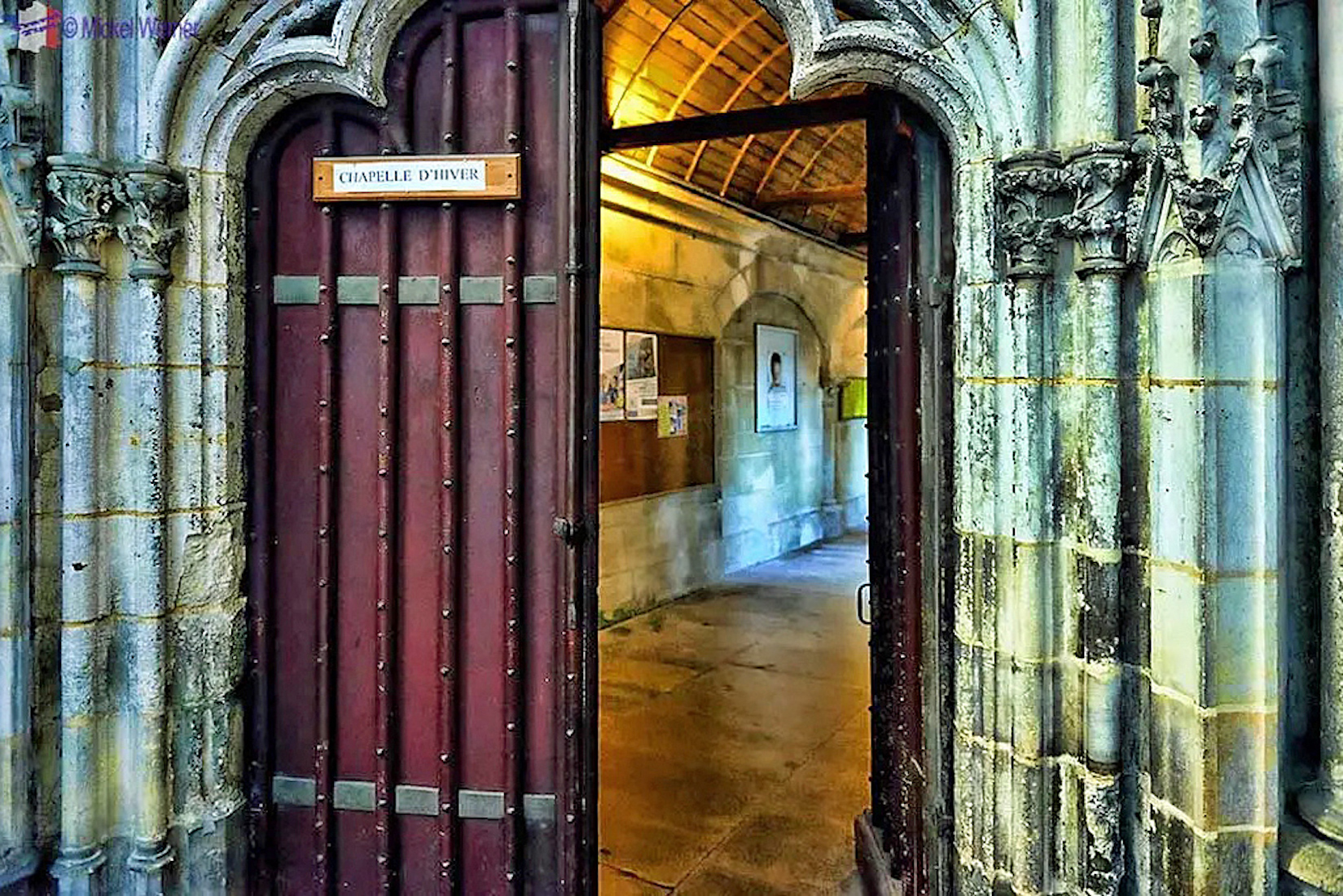
The doorway in St Quentin’s Chapel opens to a link passage through to the Winter Chapel. INDEX
A22. WINTER CHAPEL WC
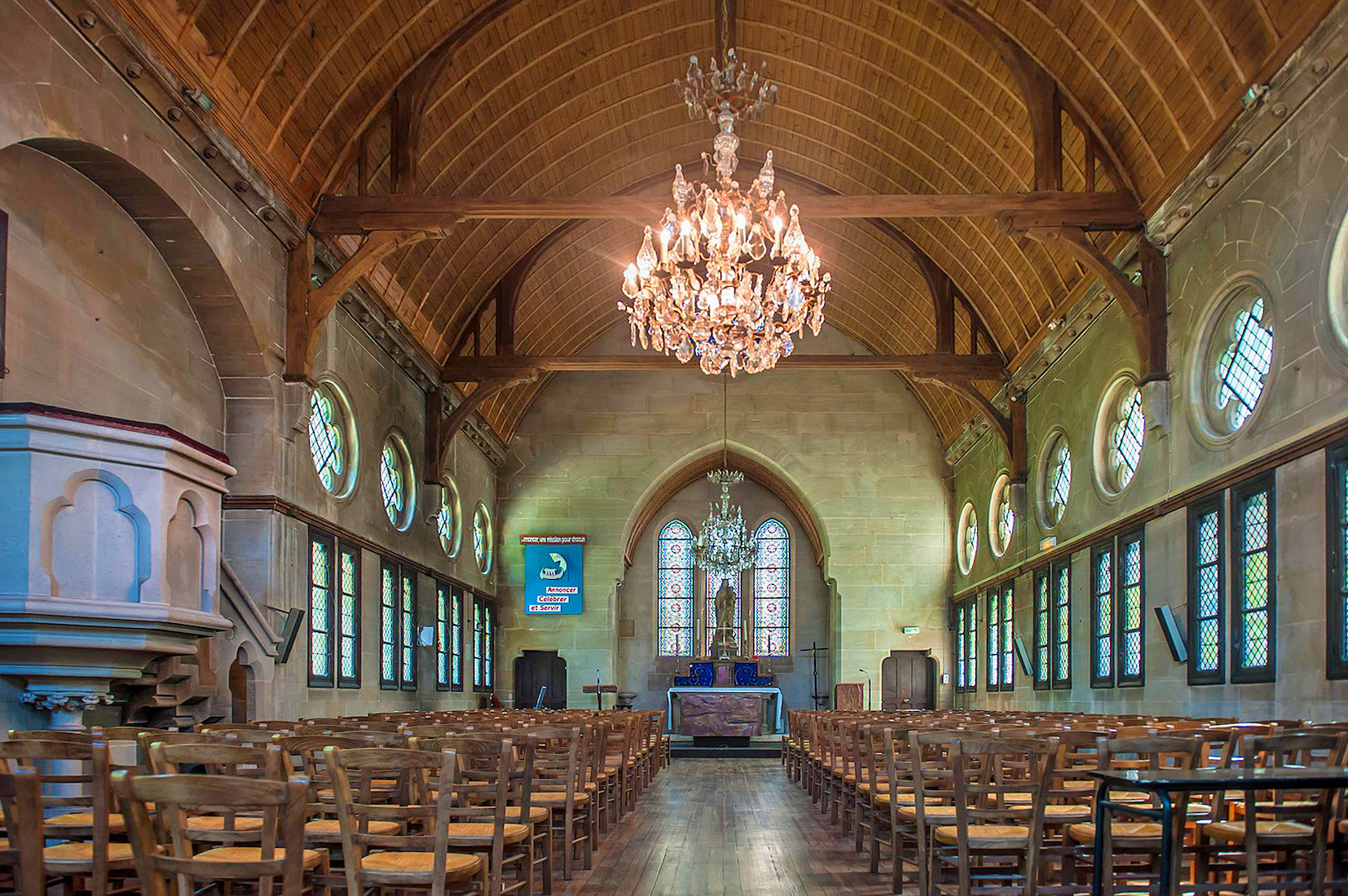
The Winter Chapel is the largest of the chapels, and used for small assemblies of people. The half-barrel timber roof and chandeliers are impressive. A statue of the Madonna and Child stands behind the front altar. A report from The Picard Courier on November 19, 2007 speaks of a mass being held ‘in the well-heated winter chapel’. [Photo Credit: Wikimedia Commons Jérôme Bastienelli]
A23. NORTH AMBULATORY LM LM
Walking Westwards down the Northern ambulatory, we stop to admire the wonderful black and gold wrought iron partition on our left. From the ambulatory we catch further glimpses of the stained glass in the apse clerestory windows.
A24. LADY OF PITY CHAPEL CD
Returning to the Northern chapels, the chapel next to the St Quentin Chapel is the ‘Notre Dame de Pitié’ Chapel, or ‘Our Lady of Pity Chapel’. The altar of this Chapel matches the style and position of the ‘Notre-Dame l’Anglette Chapel’ altar on the South side. The figure was sculpted by Jean-Baptiste Dupuis in the mid 18th century.
A25. NORTH CHOIR AISLE AMT WC
It is always good to look back, and here near the Lady of Pity Chapel is a view of the North ambulatory where we have been. We do notice another monument though: at left on a column, the funerary monument of Antoine de Baillon. Louis Antoine François Baillon (1778 –1855) was a French naturalist and collector; he was also a canon of Amiens Cathedral. He was born in Montreuil-sur-Mer and died in Abbeville. The sculpture by Nicolas Blasset shows the deceased kneeling before Christ. [Photo2 Credit: Wikimedia Commons Ybroc]
A26. ACROSS THE NORTH AMBULATORY CD WC
Time for a rest! This lady is sitting looking across the North ambulatory towards the wall just West of the Chapel of the Lady of Pity. The tomb and effigy belong to Bishop Gérard de Conchy who presided over work of construction on the choir – the completion of the radiating chapels and a start on the upper choir. The adjacent shrine contains what is said to be the head of John the Baptist. [Photo2 Credit: Wikimedia Commons]
A27. CHAPEL OF ST PETER AND ST JOHN (THE BAPTIST) CD MW
Our final chapel faces out onto the North transept. It forms a matching pair with the Conversion of Saul Chapel on the South side. This Chapel was created in response to the plague epidemic that struck Amiens in 1667–68, but was not completed until 1709. It was made by Gilles Oppenord, one of the pioneers of the Rococo style. It features a wonderful fantasy relief of Christ with his Cross in Glory.
A28. SOUTH RELIEFS OF THE NORTH AMBULATORY AMT
Our final discoveries in the ambulatory are two more reliefs against the inner screen.
A29. RELIEFS ** CD
These final polychromatic reliefs depict scenes from the life of John the Baptist. These sculptures were commissioned by canon Adrien de Hénencourt (d1530), and were constructed between 1490 and 1530. [Photo1 Credit: Shot from Video Clip]
A30. LEAVING THE NORTH AMBULATORY
A final view back along the North side of the Northern ambulatory. Amiens Cathedral contains quite a number of interesting oil paintings,but little is revealed about them – at least online. [Photo Credit: Shot from Video Clip]


